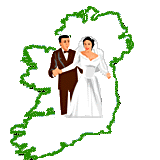A | B | C | D | E | F | G | H | I | J | K | L | M | N | O | P | Q | R | S | T | U | V | W | Y
| Name. |
County. |
Meaning. |
| oooooooooooooooooooo | ooooooooooooooo | |
| Offaly | Baronies of, in Kildare. The descendants of Ros-failghe [faly] or Ros of the rings, the eldest son of Cahirmore (king of Ireland from A.D. 120 to 123) were called Hy Failghe (O'Dugan), i. e. the descendants of Failghe (see Iverk); and a portion of their ancient inheritance still retains this name, in the modernized form Offaly. | |
| Offerlane | Co Laois | In Queen's County; a tribe name; Ui Foirchealldin [Hy Forhellane], F. M., the descendants [ui] of Foircheallan. |
| Oghill | Eochaill [Oghill], yew wood (eo and coill). | |
| Oneilland | Niallan, the fourth in descent from Colla Da Chrioch [cree] brother of Colla Meann (see Cremorne), was the progenitor of the tribe called Hy Niallain (i.e. Niallan's race), F. M., and their ancient patrimony forms the two baronies of Oneilland in Armagh, which retain the name. D added; see p. 4. | |
| Oola | Co Limerick | And Waterford; Ubhla [Oola], a place of apples, an orchard (from ubhall or abhall). |
| Oran | Uaran [uran] a cold spring. | |
| Oranmore | Co Galway | Great cold spring. |
| Oughterard | Upper height (uachdar, upper). | |
| Oulart | Co Wexford | Abhall-ghort [oulort], an orchard, compounded of abhall and gort. |
| Ounageeragh | River flowing into the Funcheon; Abh-na-gcaerach, the river of the sheep. | |
| Ovens, | The, near Ballincollig in Cork; called in Irish Uamhanna [Oovana] i. e. the caves, from the great limestone caves near the village; and the people by a slight change of pronunciation have converted these oovans or caves into ovens. See Athnowen. | |
| Owbeg river | Abh-beag, little river. | |
| Owenass river | At Mountmellick; the river of the cataract (eas). | |
| Owenboy | Yellow river (abhainn} | |
| Owenclogy | Stony river (abhainn and cloch). | |
| Owenduff | Black river. | |
| Owenmore | Abhainn-mor, great river. | |
| Owenreagh | Grey river (riabhach). | |
| Oxmantown | Or Ostmantown in Dublin; so called because the Danes or Ostmen had a fortified settlement there. | |
| Ox mountains | Called in Irish Sliabh-ghamh [Slieve-gauv], F. M., the mountain of the storms, which in the spoken language was mistaken for Sliabh-dhamh, the mountain of the oxen, and translated accordingly. |
A | B | C | D | E | F | G | H | I | J | K | L | M | N | O | P | Q | R | S | T | U | V | W | Y
